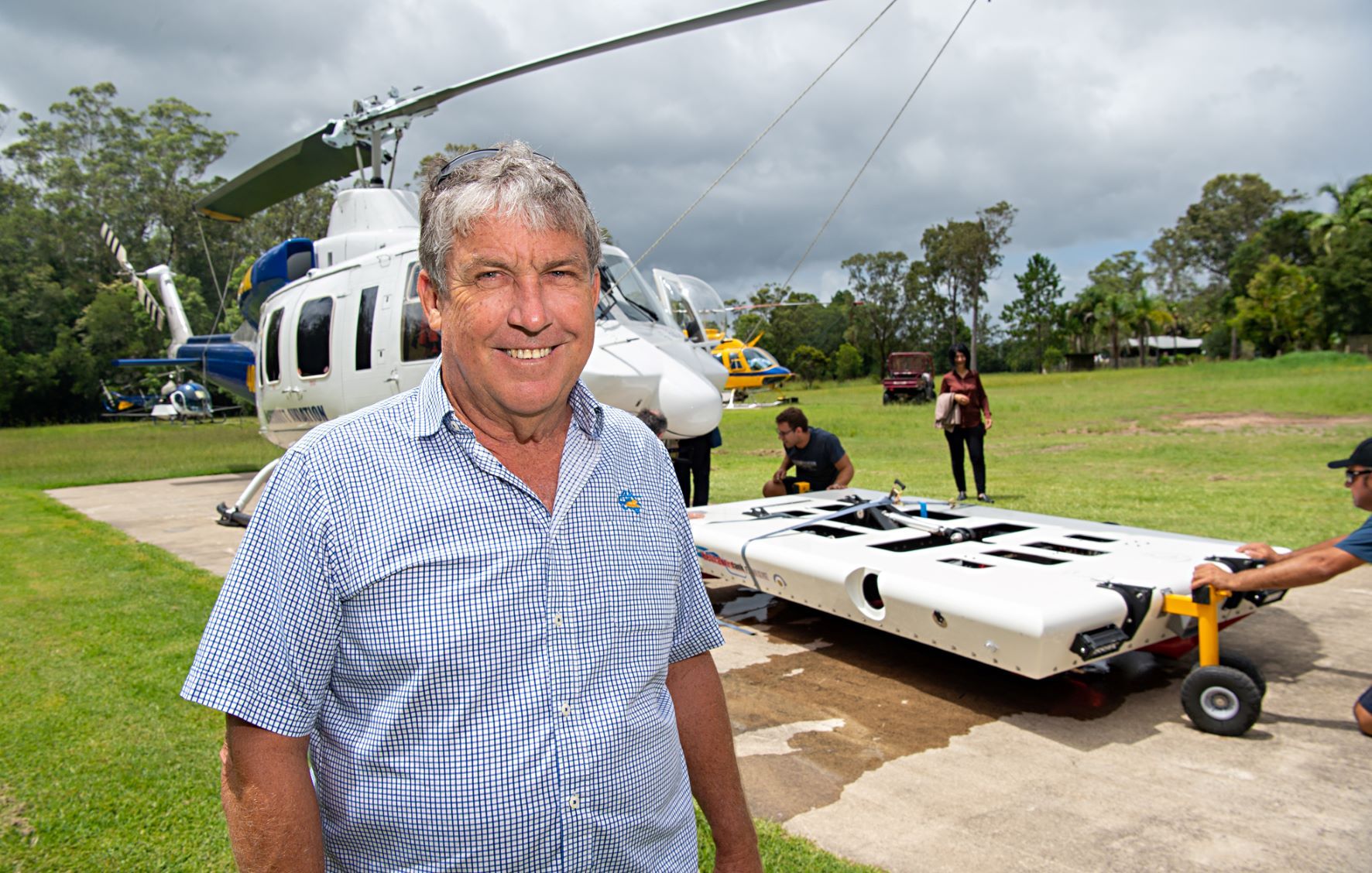By Ilias Karagiannis.
As deadly weather system Daniel hit Greece this month, local citizens were reminded that despite technological and biological advancements, they remain vulnerable to the phenomena of nature.
In areas such as Volos, Karditsa and Larissa, Greeks found themselves battling nature as water and mud poured into their homes. Some remained stranded for hours as water levels continued to rise around them.
Amongst this dystopian setting, the helicopters which arrived to rescue citizens from their homes provided some much-needed relief and support.
Among those saviours were pilots from Australian company McDermott Aviation. With seven helicopters they decisively contributed to the rescue of hundreds of people and the gratitude on the faces of those rescued will remain forever etched in the minds’ of those pilots.
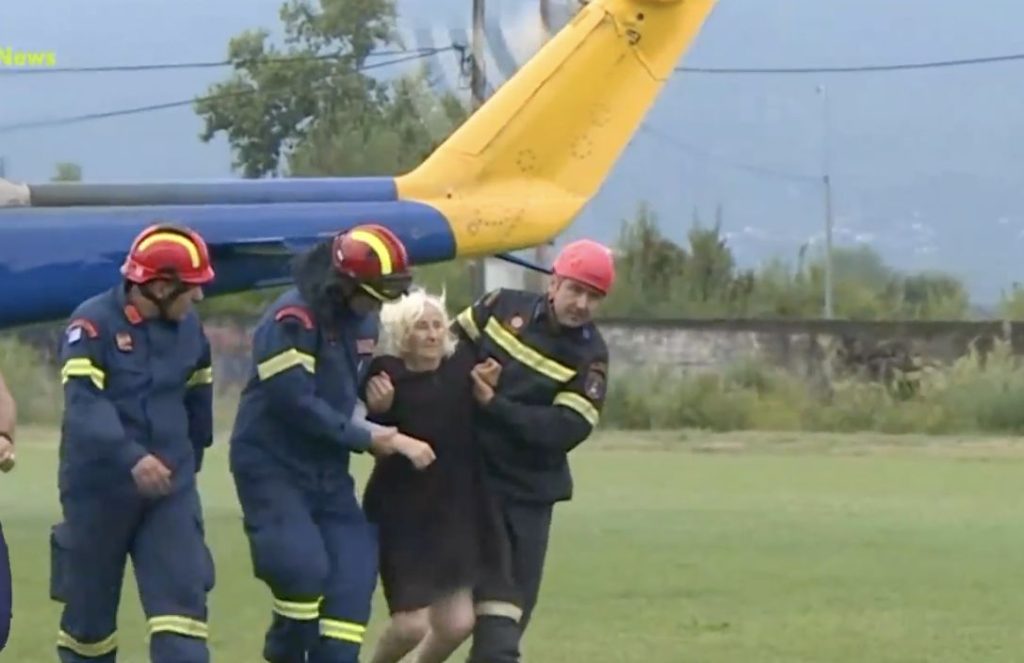
In recent years, the company’s helicopters have been helping to extinguish fires in Greece. This year, they were called to rescue people who were stranded.
The Greek Herald spoke with the President of McDermott Aviation, John McDermott, and initially asked him to give us the outline of his company’s mission in Greece.
“We have 8 Bell 214ST helicopters based in Greece on contract for fire fighting operations. These helicopters are transport certified helicopters and as such can carry passengers and cargo,” Mr McDermott said.
“During the floods, we had seven of our helicopters tasked for flood relief and support to emergency services. We were involved in retrieving people stranded by flood waters, as well as medical evacuations.
“We were also used to carry supplies and emergency response teams into the towns and villages cut off by the flood waters.”
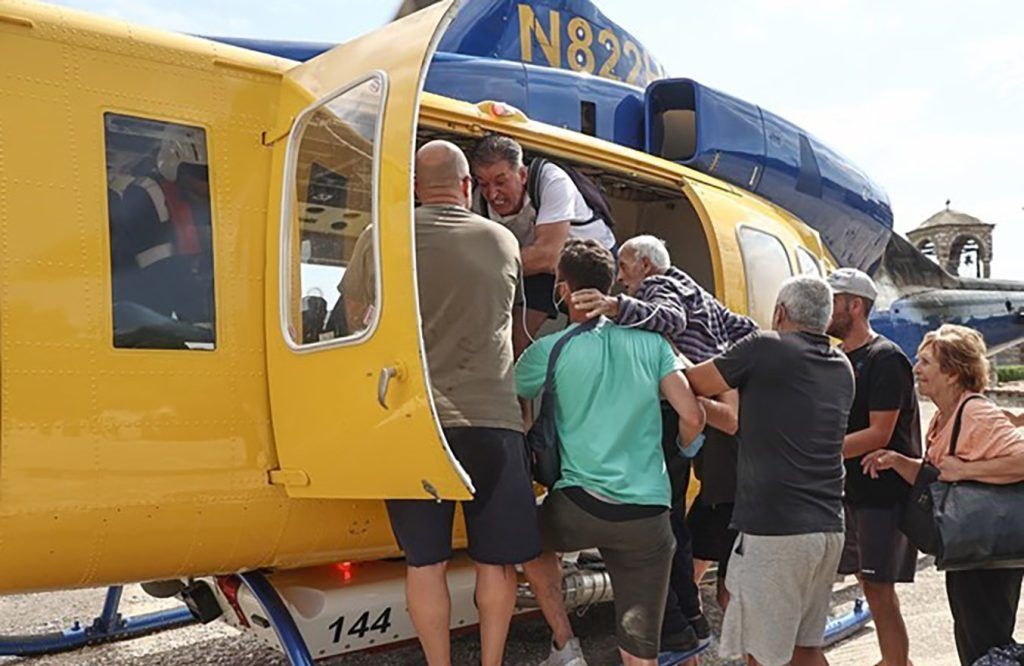
Storm Daniel was extreme and unprecedented. We asked Mr McDermott about the significant challenges McDermott Aviation faced during rescue missions.
“The flying conditions were initially quite difficult due to weather. All the pilots advised that just seeing the level of devastation was very humbling. We flew very long hours for the days we were tasked so as to provide maximum efficiency for the flood impacted communities,” he said.
Gratitude and the next day:
In pictures released to the media, the public saw people being carried by the helicopter crew to safety. The stories were heart-warming and we asked Mr McDermott to share some with us.
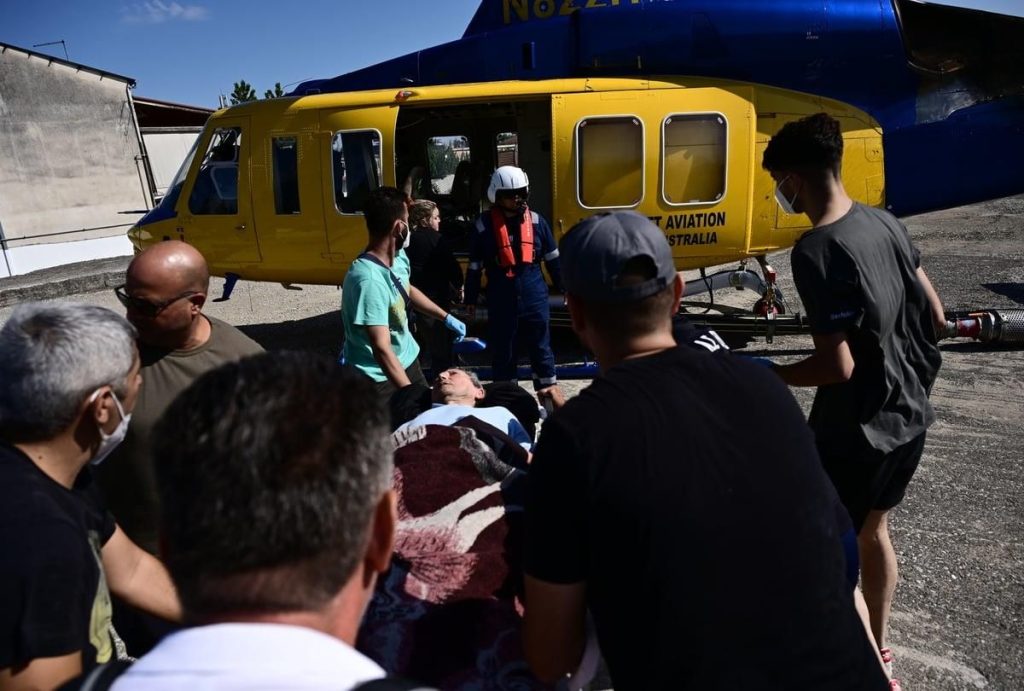
“There were quite a few nice stories… particularly of elderly people being helped into and out of the helicopters and them being so grateful,” he said.
“Unlike fire fighting, where we are perhaps saving houses/structures etc., it is very rare that our pilots come in face-to-face contact with those they are helping, whereas with flood relief we are very ‘hands on’ and there is a real feeling of being a part of a team and making a difference.”
With McDermott Aviation coming to Greece every year, we asked its President what his thoughts are on the needs of countries like Greece and what the future is for his company.
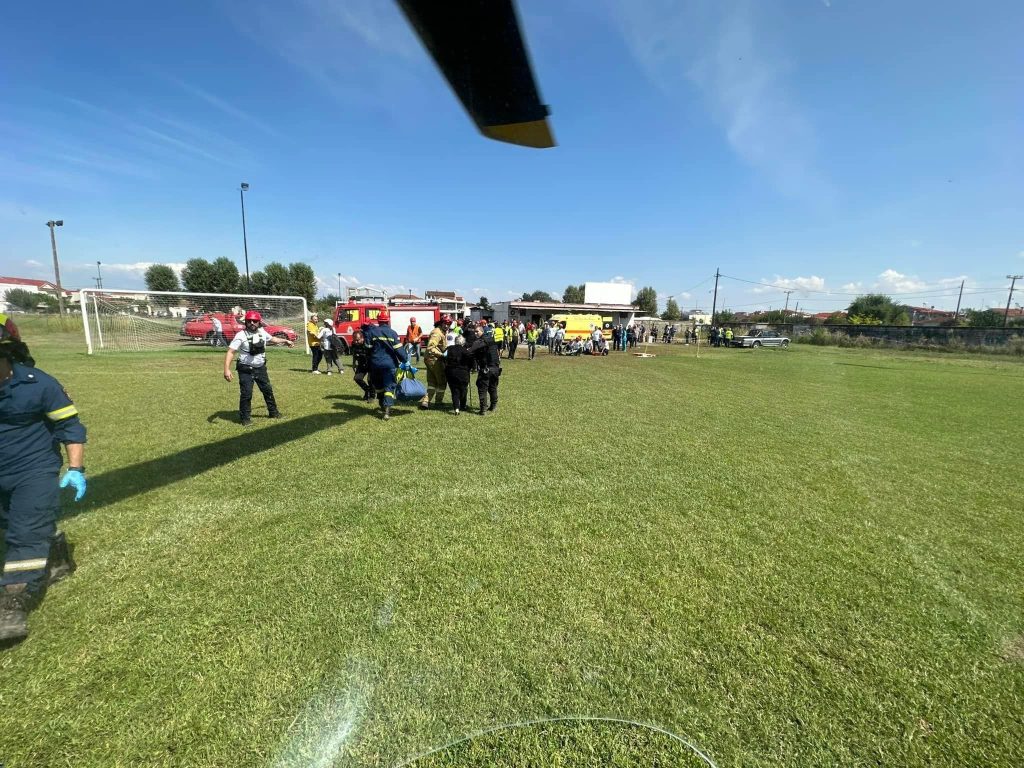
“Being able to utilise assets and people in international disaster relief and or wild fire prevention is highly important,” he said.
“It would be cost prohibitive for every country to have available every possible resource for every possibly disaster/catastrophe – let alone have the experienced crews to operate the machinery or provide the expertise. As such, sharing of resources seems to be the logical answer.
“We are able to respond to calls from international emergency agencies extremely quickly and can move our helicopters in as little as 24 hours from notification. We will be bringing most of our helicopters back to Australia for contracts here, though a few will remain in Greece.”
